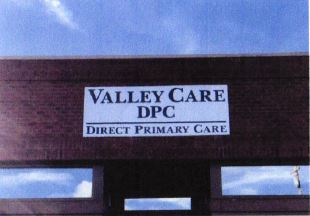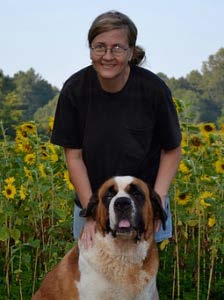Doctor's team takes on COVID challenges
From the largest of hospitals in major American cities to small private clinics in rural areas, healthcare providers are grappling with how to care for patients and try to keep them safe during the COVID-19 pandemic.
One such provider is Dr. Frannie Koe, owner and doctor for Valley Care DPC in Collinsville. Koe’s unique approach to providing health care in a rural setting has not kept Valley Care DPC from suffering consequences of the COVID-19 pandemic. She said the pandemic has “impacted everybody a lot” in Collinsville, including her own patients and staff.

Koe went through periods of time before earning her medical degree from the University of Alabama where she and her children did not have health insurance. This made doctors’ visits a financial burden for her family.
That inspired Koe to spend 15 years privately researching nutrition, diet, and “how to make us healthier” using more natural forms of medicine like herbs. This information, as well as her experiences with inaccessible healthcare, are what led her to choose a direct patient care model for her clinic in Collinsville.
In a DPC clinic, patients, many without insurance, pay a small monthly fee in exchange for multiple monthly visits with the doctor. This can cut down on costs for patients, giving them access to lab work and testing. This model allows for more individualized treatment because, she explained, it allows her to “spend an hour at a time with people” if they need it.
For the first one or two months of the pandemic, the doctor said her clinic had problems accessing important resources needed to keep staff and patients safe, such as PPE, and even COVID-19 testing equipment. During this time, many employers and worship leaders in the community had not yet made the choice to employ protection plans, which led to the spread of the virus.
Koe said one of her staff members became ill with the virus, and many of her patients were exposed through church functions and work. However, she only “knows of one death in the community” directly COVID related.
Now, the doctor noted, the “stress is lower” surrounding the virus. The clinic was able to take advantage of the federal Paycheck Protection loans to keep staff hired, and they feel more supported in their journey to keep Collinsville safe from the virus, she added.
Koe and her staff have had constant discussions about providing PPE, cleaning the clinic, making triage tents to limit numbers inside, and locking the doors so that walk-ins are no longer available. She said that “every week, or couple of weeks, we have had to make changes.”
Luckily, Valley Care DPC has kept their doors open. Koe said it is important to her that she is able to continue caring for patients.
One large group of her patient base includes residents of the local nursing home in Collinsville, the Collinsville Health and Rehab home, where many of the residents are high-risk for COVID. The doctor said she and her staff have been “super cautious” to protect themselves so they can continue to serve the residents there.
Koe said masks are important in preventing the spread of the virus. “They are shown and proven to lower transmission rates” among asymptomatic carriers and those who are showing symptoms,” she said.
Testing is also important to preventing the spread, and the staff at VCDPC are testing many of their patients when they come to the clinic for care.
Additionally, she wants to keep encouraging patients to eat healthy and participate in the community garden and food hub because “being in the sun and getting Vitamin D” can “decrease chances of getting any kind of illness.”
Patients are encouraged to meet these health goals by participating in Collinsville’s community garden and food hub that she helps run. The garden and food hub help distribute healthy produce to Collinsville citizens each week.
The clinic focuses on the importance of diet. She especially highlights diets like the ketogenic diet, which emphasizes the importance of eating fewer carbs and more healthy fats, as well as other diets that include fresh produce.

Koe explained she prefers using diet and lifestyle changes rather than prescribed medications with the intention of “recoding their bodies to be a lot healthier.”
While COVID has certainly caused trouble for Koe and her staff, it has also allowed her to think about new ways to educate patients about their health, like creating educational diet videos to post on her blog site, Agroshare. She also hopes to learn Spanish so that her educational materials can be more accessible to the large Spanish-speaking population of Collinsville.
No matter what obstacles arise, Koe said, she wants better healthcare options across Alabama and the nation. One of her dreams, she said, is “to speak in front of Congress to get everyone in America healthcare.”
To Koe, “medicine is reducing fear.” She said having the ability to talk to people in her clinic and ease their fears about what is going on with their bodies is something that makes her passionate and determined to never give up.
Tags: Collinsville